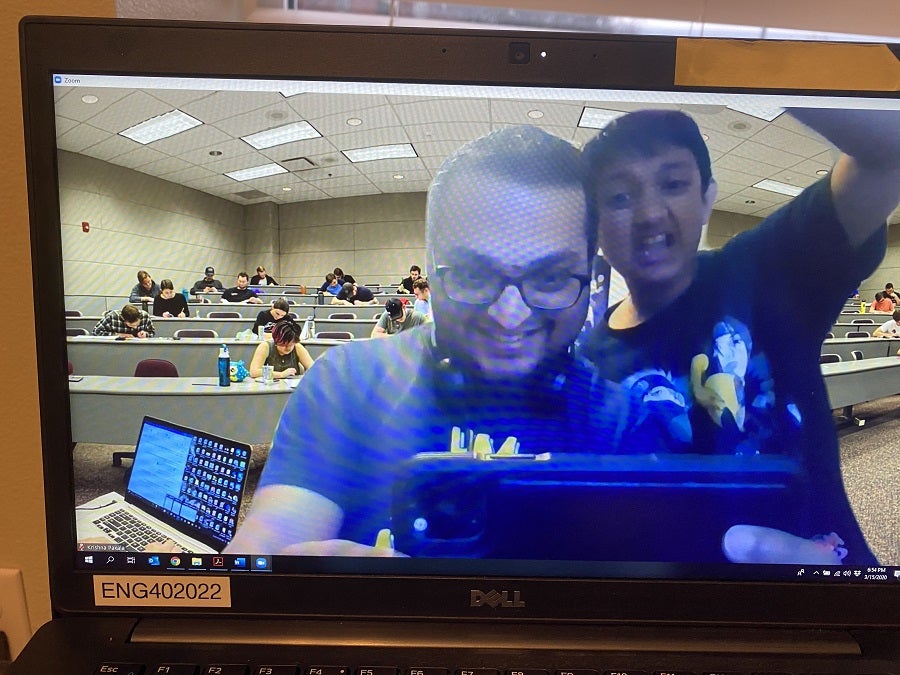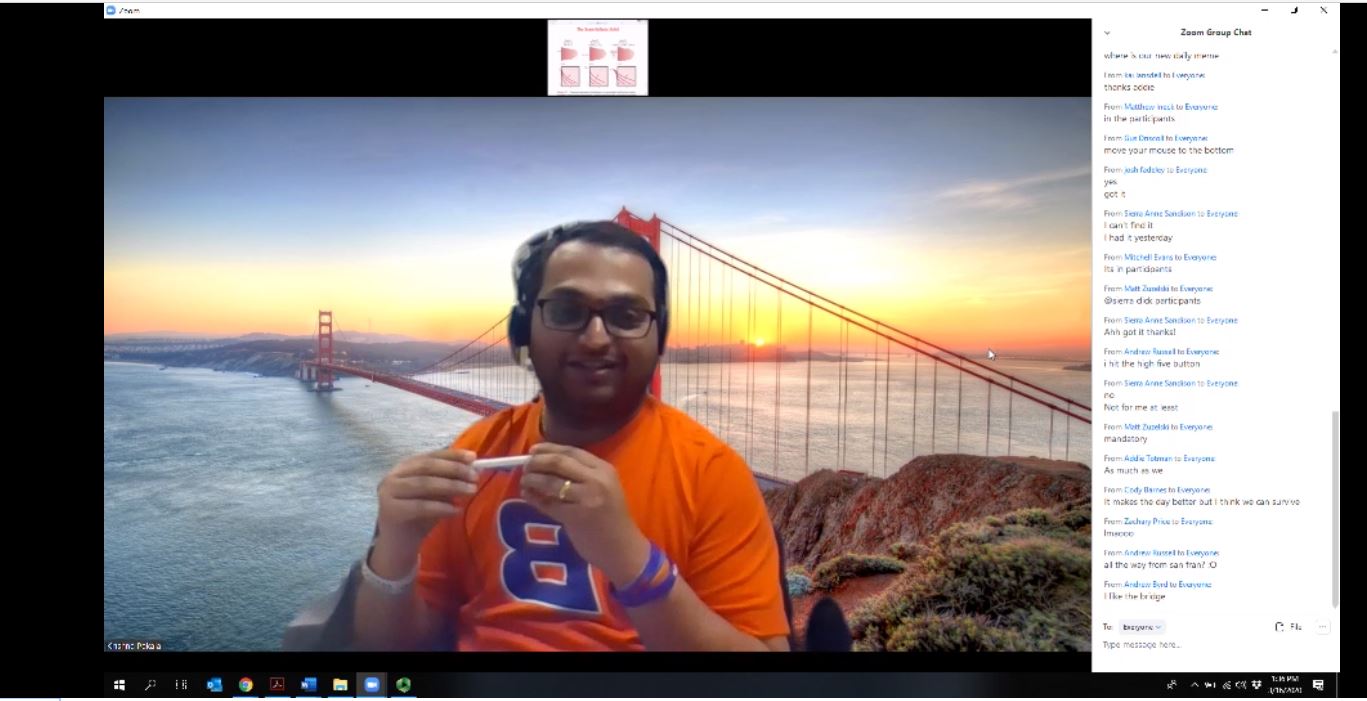
If you’re just now hearing about Dr. Krishna Pakala, he’s a professor and faculty-in-residence with a long, and impressive bio. I met him at the Rec Center of all places. Never took a class from him, I’ve hardly seen him in person, but I began following his social media after we met and quickly became a fan of his work. To me, I didn’t much care which department he was in, or what topics he taught (although, of course, that’s still very important), what I noticed instead was how he supported students.
So, my bright idea was to ask Krishna if I could write a story about how he was able to maintain connections after transitioning to online courses, because of COVID-19. He graciously accepted, and a few days later, he sent me a 7-page document filled with about a million links to various projects he’s worked on in the last few months. Tweets, YouTube videos, TikToks, Zoom clips, the whole thing. I don’t even think it’s a complete list.
I had to throw out several versions of this article before starting the one you’re reading now. Deciding the right angle, tone, point of view, as well as getting the right messages I want to get across is always challenging, but in this case, I felt it was really important for me to be honest. I’m truly just a fan of Krishna, and the work he has done, and I’m sure I don’t even know half of it.
I’m inserting myself into this story, because I can, and I think it’s the most genuine version of it that I could possibly write. Now, I know I’m not the first person to sing Krishna’s praises. He’s won such and such award, been published in such and such journal—very prestigious stuff, seriously. To many people, none of what I’m about to talk about is new information at all.
So now here I am, volunteering to write about Krishna and his philosophy and all the cool things he’s done in a short article on a small website. Like I said earlier, I’ve struggled with how I can do him justice. But it struck me that his response is exactly what I should have expected, based on what I’ve seen from him. Krishna goes above and beyond the call of duty, to put it mildly.
Right after it was announced that classes would move online, he wasted no time in planning his next steps. He started giving open trainings about Zoom and Panopto to other faculty members, staff, and students—often several times a day. He was freely available to help anyone with questions about technology or tips about how to deliver content online. “I personally wanted to contribute in any way I can during these turbulent times. There is no “playbook” for rapid transition to remote teaching and learning. It was an evolving situation which needed evolving adaptations to facilitate student learning given so many variables.”

He also made a few adjustments to the use of his class time on Zoom. He started each class with something special. A talent show for his students, where they were able to discover hidden talents about themselves. A musical performance by his students which made local news. Special guests made appearances to boost student’s morale, like Lauren McLean, the Mayor of Boise, and two guest performances by a hilarious and talented Boise State staff member that played the piano and sang ridiculous songs (full disclosure, it was me).
It’s his social media accounts where you’ll find the bulk of his content. Some videos are student spotlights, some are videos of him with his family, one series of posts (posted every day from March 17 to April 30, 45 days non-stop) always starts with “In these turbulent times, I will start my each day to relive the moments which connect us all.” I wasn’t the only one noticing the work he was doing. He was also invited to speak in a video from The Chronicle of Higher Education, where he said, “Life is more important than ever. I think our goal right now should not be to make a challenging course, there are already enough challenges out there. We should strive to make a compassionate course.”
I asked him how he found time to put in all the work for the videos, and he said he had to make the time—often staying up past 3 a.m. working on a video.
Krishna recognizes, like our students do, that connections are connections whether in-person or on-screen. That’s one reason, I think, his transition to online has been a relatively smooth one. I can’t speak for the students in his class, but to me, his adaptations showed such humanity. He wants his students to succeed academically, but he also wants to inspire hope, incite joy, help them through tough times, and harness meaningful connections too. “I have decided to use Twitter, Instagram, LinkedIn, Facebook to enhance human connections by embracing digital togetherness.”
Krishna is one of many faculty at Boise State, each with their own teaching styles and philosophies. I think in the process of teaching his students, he’s teaching the rest of us via example, how with just a little creativity you can create lasting and meaningful connections, COVID or not. That, and it’s possible to keep things positive, even in circumstances you wouldn’t always expect it to be. Who would have thought that I can learn from Dr. Krishna Pakala without ever taking a course from him?
When I interviewed Krishna about this article, he wanted to make it clear that he didn’t want this to be about him, after all, everything he has done is for the students. Well, sorry buddy. Looking forward to your next video.

If you know of any staff, faculty, or student that has gone above and beyond, please let us know at studentlife@boisestate.edu.
By Mike Taylor